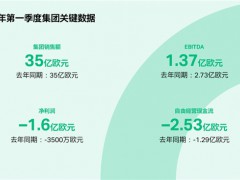???? 據阿拉伯貿易2021年3月16日布達佩斯報道,在經過數年的研究和開發以后,匈牙利油氣集團(MOL)通過對多瑙河煉油廠實現投資加強了價值鏈并成為了生物燃料生產商。
????生物原料將與化石材料共同加工,提高燃料的可再生能源份額,并在不影響燃料質量的情況下減少多達20萬噸/年的二氧化碳排放。
????MOL下游執行副總裁Gabriel Szabó說,“MOL通過購買50多萬噸的生物燃料(生物乙醇和生物柴油)用于混合一直是一個生物燃料用戶。有了這筆投資,MOL首次開始生產消費者買得起的柴油,并成為生物燃料生產商。好處是很多的,由于我們生產更多可持續的燃料,我們也將通過回收廢物來幫助循環經濟。根據我們最近更新的戰略‘塑造明天’,我們計劃到2030年前生產10萬噸以上的生物燃料。”
????在多瑙河煉油廠的共加工過程中,生物原料與化石材料一起加工生產柴油燃料。植物油、廢棄的食用油和動物脂肪也可以用于這一目的。因此,生產出來的輕油是部分可再生的,與完全由原油生產的柴油相比,沒有任何質量變化。
????這種創新方法的主要優點是,生成的生物柴油仍可與最多7%的生物原料基燃料混合,符合柴油標準,從而使輕油的生物份額更高。
????李峻 編譯自 阿拉伯貿易
????原文如下:
????MOL Group starts innovative biofuel production
????Following several years of research and development MOL has stepped up the value chain and has become a biofuel producer, through the realisation of an investment in the Danube Refinery.
????Bio feedstock will be co-processed together with fossil materials increasing the renewable share of fuels and reducing up to 200,000 tonnes /year CO2 emission without negatively affecting fuel quality.
????“MOL Group has been a biofuel user by purchasing more than 500.000 tonnes of biofuels (bioethanol and biodiesel) for blending. With this investment, we have started to produce sustainable diesel for the first time within MOL Group and we became biofuel producers. The benefits are numerous, as we produce more sustainable fuel, we will also help the circular economy by recycling waste. In line with our recently updated strategy, “SHAPE TOMORROW” we are planning to produce 100.000+ tonnes of biofuel by 2030” – said Gabriel Szabó, Executive Vice President of MOL Group Downstream.
????During co-processing at the Danube Refinery, bio-feedstock is processed together with the fossil material in the production of diesel fuel. Vegetable oils, used cooking oils and animal fats can also be used for this purpose. As a result, the produced gasoil is partly renewable, without any quality changes compared to diesel produced entirely from crude-oil.
????The main advantage of this innovative method is that the resultant biodiesel can be still blended with a maximum 7 percent of bio-feedstock based fuel, in line with diesel standards, allowing the bio-share of the gasoil to be higher.
免責聲明:本網轉載自其它媒體的文章,目的在于弘揚石化精神,傳遞更多石化信息,并不代表本網贊同其觀點和對其真實性負責,在此我們謹向原作者和原媒體致以敬意。如果您認為本站文章侵犯了您的版權,請與我們聯系,我們將第一時間刪除。







